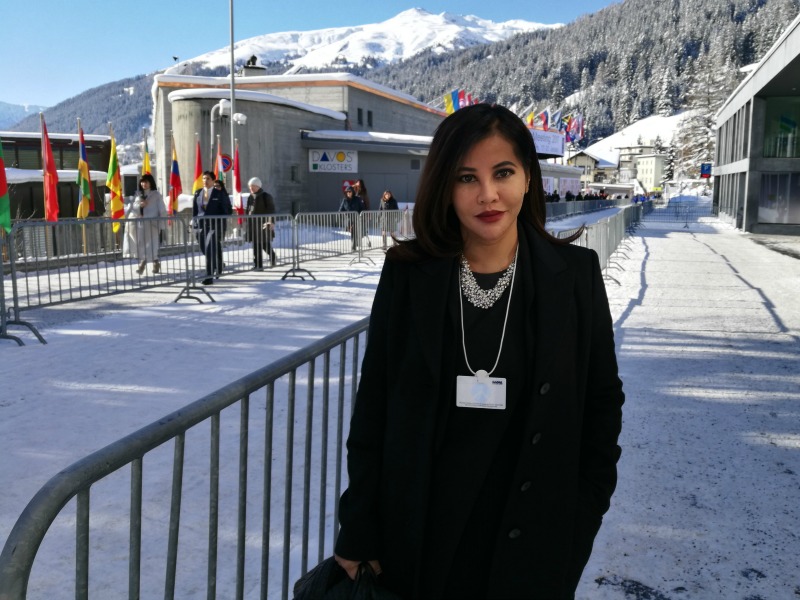Arun Sudhaman 18 Jan 2017 // 12:44PM GMT

Four years ago, Asia Pulp & Paper (APP) surprised many observers by pledging to halt deforestation, after a sustained Greenpeace campaign that saw clients desert in droves.
APP's decision was widely hailed. In an interview at the time, APP head of sustainability Aida Greenbury told the Holmes Report that the company would be judged on its performance, not its promises. Greenbury sat down with the Holmes Report in Davos to discuss APP's progress amid NGO criticism, the importance of "little promises", and why PR agencies "still don't get" that "the best PR is about transparency, warts at all."
What have been the top stakeholder challenges you have encountered since announcing the zero deforestation policy?
I thought creating the policy was the difficult part because we have to put what we can deliver on paper and we are going to be bound to it. There’s no backtracking. Two to chree months after I realised the most difficult part is the implementation. That’s how you climb the mountain. Why I say it’s difficult — there is no blueprint for zero deforestation, there’s nothing. The more we did, the more we realised it’s very challenging and we need to develop more and more policies and plans.
The biggest challenge is how to bring the community together on our journey. We invited Rainforest Alliance in 2013 to have an assessment of our policy in 2014. That’s when we realised that even though we implemented the zero deforestation policy, deforestation is still going on. It’s not only about your supply chain and suppliers, it’s about the landscape and the actors in the landscape. One of them, the biggest challenge, is community members. We’re not the government, but we have to find an innovative mechanism to bring them together with us.
The number two challenge is the landscape approach — lands that are not under the control of our suppliers, but are under the control of government and other industry. You’ve got to make sure the other actors in the landscape work with you not against you.
What we thought was as easy as turning off a bulldozer or chainsaw became much wider than that. We have to dare to trial and error and sometimes fail. I’m very proud that we have been reporting our progress publicly and on average we’ve made big steps forward. Yes, there are some areas we need to improve, but the changes cannot be done in four years.
You can’t work in isolation. How do you get other players — whether government or other companies — to follow your lead?
It’s not about having them following my lead. It’s about engaging them and asking them to be our partners to do this journey together. A multi-stakeholder approach and consultation. Engaging the government is key, especially the provincial government, and showing why this approach is good for the populace. And showing our partners why this is good.
For the government, we have been showing them it’s in line with national programs. With the community, we have to come up with a new model where they can have a more sustainable livelihood. At COP21, we launched a new model based on agro-ecology — it's like agro-forestry but incorporates ecological values. We're finding ways to help people earn better income without destroying the environment. We are partnering with several institutions to find these solutions.
In terms of community engagement, business now often takes on a quasi-governmental role, providing a level of social support. Did you expect this role?
Not this heavily. We are implementing our policy by learning. We never thought we would be involved this heavily with community engagement. The more I think about it, the more I think it’s about saving our investment, and protecting our business. Actually we are investing in the community.
What has the NGO response been like?
It’s a mix. Depends on the agenda of the NGO. But we’ve made a lot of progress with our collaboration with NGOs. We couldn’t do it without the support of the local NGOs who are helping us with implementation. We have engaged, easily, dozens of NGOs.
Greenpeace, they continue to be very constructive. A lot of criticism but it’s very constructive. The same with WWF. I do not expect the NGOs just to applaud us and give us a pat on the back. Criticism is OK, as long as it’s constructive.
There is a lot of talk at Davos this week about big business being out of touch with society. What's your advice for building a trusted company?
Now is not the time for big headlines and big commitments. Now is about actually showing real progress on the ground. Now, it’s OK for leaders to talk about details. That’s what leadership is seen as. I’ve seen some sessions here...they are detached from the real issues of implementation of policy. We need to improve that. The world is changing. Global leadership is not seen as about creating big news — it’s about the commitment to the little issues that affect everyday people.
The devil is in the detail. Implementation is as important as policy?
Implementation is more important than policy. Big commitments and headlines are important to create that positive feeling. But it pales compared to what can be achieved with positive implementation. During the journey you have to listen to everybody.
How about the employee engagement challenge? Have you faced much internal opposition to your policy?
Over time it’s easier. I had to convince myself four to five years ago. If I have to convince myself and I’m the head of sustainability, of course there’s a lot of convincing for other people that work for the company. What we do here is affecting the world, it’s not just the commercial bottomline. So, there’s a lot of training, socialisation programs. Internal is more important than external sometimes, because it’s implementation. My core group of stakeholders was always internal. The next layer was people that work with us but not our employees. The third layer was government, NGOs and so on.
You have been outspoken about PR agencies in the past. What's your position now?
I’m still working with Cohn & Wolfe. But for sustainability advisors, I’m using Global Counsel. Globally we use so many different agencies. For branding and marketing, it’s very simple. But when we want to talk about complicated issues like climate change and sustainability, we need specialist agencies to help us do that. Unfortunately, there are still not a lot of agencies who understand this. I do not need somebody focusing on headlines. Focusing on greenwashing. I need somebody to help me understand what we are doing on the ground. I need people who are committed enough to understand that.
The best PR is transparency, warts and all. If it’s easy everybody would do that. Interview the community, they will say what they think. We should not be afraid of transparency. We tell the world we’re not perfect. Not a lot of PR agencies get that. PR should be about the uncontrollable beauty. You’ll be caught lying.


































.jpg)




.tmb-135x100.jpg)



.tmb-135x100.jpg)








